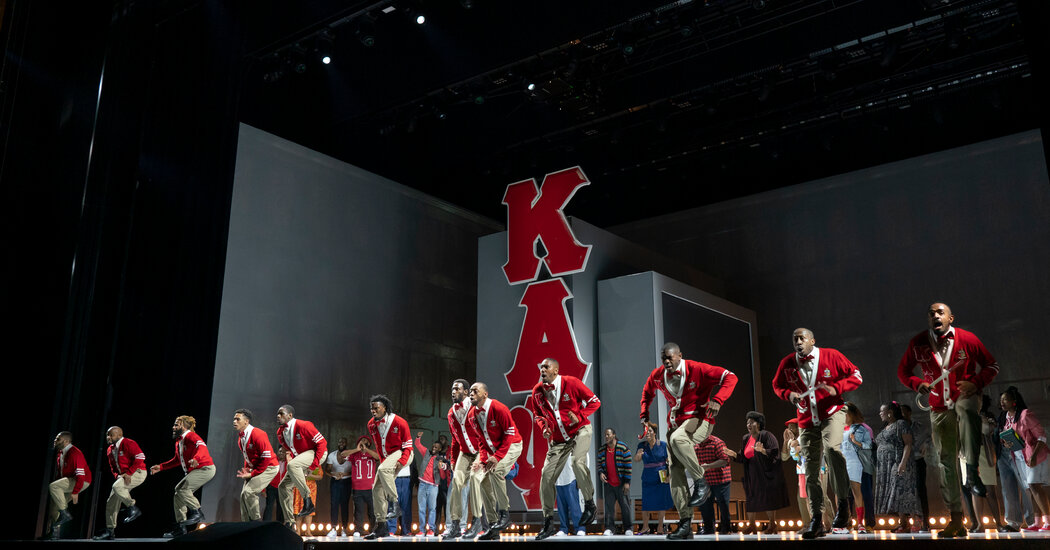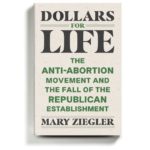
Has there ever been a Metropolitan Opera season like the one that just ended? In which the stuff onstage — the homicidal brides, mystical pharaohs and longing stepsons — felt so anticlimactic? Over the past eight months, amid a labor battle, a pandemic that surged again and again, and a war, it was as if the real drama was in simply getting the doors open. Once that was achieved, what followed was almost beside the point.
Or, to put it more accurately, what followed was like icing on the cake. Rarely has it felt so sweet to be inside the gilded Met, has opera seemed — whatever you thought of a given work, singer or production — so much a gift. A groundswell of gratitude was palpable throughout the season, which finished on Saturday evening with Verdi’s “Rigoletto.”
You felt it in the explosive ovation that greeted a virtuosic step-dance sequence in Terence Blanchard’s “Fire Shut Up in My Bones,” which opened the season as a double milestone: the first production since the pandemic lockdown in March 2020, and the first work at the Met by a Black composer since its founding in 1883.
You felt it in the roaring curtain calls at the revival of “Akhnaten,” which proved once again that Philip Glass’s idiom has been welcomed by the Met audience as wholeheartedly as those of Mozart or Puccini.
Around this time a year ago, it seemed like the great battle would be returning after a canceled 2020-21 season. Bad blood was in the air: The Met’s unions were furious at the company’s general manager, Peter Gelb, for his insistence that unpaid furloughs were the only way it could survive the long lockdown. The situation grew so bitter that it seemed possible a strike or lockout would keep the Met closed past the planned opening night.
But the promise of coming back after 18 months proved too strong to resist, and the unions and management came — warily — to terms. No one who was at the outdoor performances of Mahler’s “Resurrection” Symphony over Labor Day weekend, or, especially, at the return indoors for Verdi’s Requiem on the 20th anniversary of the Sept. 11 attacks, will forget the relief and joy of the Met once again making live music at Lincoln Center.
The opening months of the season had an air of triumph. There was the sold-out success of “Fire Shut Up in My Bones”; a series of ambitious revivals, including the Met’s first performances of the brooding original version of Mussorgsky’s “Boris Godunov” and Wagner’s six-hour “Die Meistersinger von Nürnberg,” the longest opera in its repertory; and Matthew Aucoin’s recent “Eurydice,” in which a sprawling orchestra thrashed Sarah Ruhl’s winsome version of the Orpheus myth.
Then the rise of the Omicron variant in late fall began to claim performances, festivals and concerts. The Vienna State Opera was closed for almost a week. But the Met buckled down, strengthening its already stringent health protocols and dipping into a broad pool of covers to fill in for sick artists. With luck on its side, it stayed open through the winter — and into yet another rise in cases this spring.
Broadway shows kept canceling at the last minute or closing entirely, but the Met, America’s largest performing arts institution, never did. That will be Gelb’s legacy from this troubled period, along with the landmark “Fire” and the unrelenting position he took after the invasion of Ukraine, when he declared that the Met would sever ties with artists who supported President Vladimir V. Putin of Russia. That ultimatum had one singer in mind: the Russian soprano Anna Netrebko, the company’s leading diva, who criticized the war but remained silent about Putin. In a coup, Gelb replaced her as Puccini’s Turandot with the Ukrainian soprano Liudmyla Monastyrska, who drove the audience wild when she wrapped herself in a Ukrainian flag to take her bow.
Gelb’s Netrebko decision wasn’t universally praised, and other major opera houses now seem to be inclined to welcome her back, classifying her as merely a prominent Russian, not a hardcore Putinist. But within the Met, the moral clarity of the war proved a unifying force: At the benefit concert for Ukraine, some players in the orchestra even applauded Gelb, their nemesis during the grueling furlough, as he declared from the stage that they were “soldiers of music.”
Somewhere in the midst of politics and the virus was opera. Under the focused baton of Sebastian Weigle, “Boris Godunov” was memorably grim in the concentrated form Mussorgsky gave it before a hodgepodge of revisions; “Meistersinger,” expansive enough that it really does seem to convey a whole world, was relaxed and sunny, and gently comic as led by Antonio Pappano.
Simon Stone’s technically savvy staging of Donizetti’s “Lucia,” set amid the malaise of a contemporary postindustrial American town, didn’t translate its bold concept into a convincing portrayal of its pathetically suffering title character. The Met’s de facto house director these days, David McVicar, offered a grayly old-fashioned production of Verdi’s “Don Carlos.”
Davidsen, in Strauss’s “Ariadne auf Naxos,” a mythic creation of flooding tone, also lavished her soaring soprano on Eva in “Meistersinger” and Chrysothemis in Strauss’s “Elektra,” her voice almost palpable against your skin. The mezzo-soprano Isabel Leonard brought silvery elegance to Cherubino in Mozart’s “Le Nozze di Figaro” and the Composer in “Ariadne.”
There were sympathetic soprano star turns from Ailyn Pérez as a fiery soloist in the Sept. 11 Requiem and a girlish Tatiana in “Eugene Onegin,” Eleonora Buratto as a reserved Madama Butterfly and Elena Stikhina as a kindly Tosca — as well as from Sonya Yoncheva, in a solo recital of shadowy sensitivity.
While Blanchard’s score moved comfortably between bars, college parties and fraught, tender nocturnes, “Fire” was fairly turgid as drama, its individual sequences clear but the broader conflicts driving its characters obscure. (It was telling that the most dazzling sequences in this opera were Camille A. Brown’s dances.)
Perhaps most remarkable about the offerings this season were the three — count ’em — works from the past five years: “Fire,” “Eurydice” and Brett Dean’s “Hamlet,” which set to seething music Matthew Jocelyn’s moodily distilled version of Shakespeare. The Met has not had so many recent operas on a single year’s lineup since the early 1930s, even if that number is notable only in the context of the stubbornly backward-looking world of opera.
Not long ago, the idea of three contemporary operas in a Met season would have been preposterous. This was largely because the company’s longtime music director, James Levine — while he expanded the repertory significantly and presided over a handful of premieres — didn’t prioritize newer work.
But his successor, Yannick Nézet-Séguin, agrees with Gelb that contemporary operas are crucial, both artistically and for expanding the company’s audience. And Nézet-Séguin is putting his money where his mouth is: He conducted both “Fire” and “Eurydice,” and leads Kevin Puts’s “The Hours” in the fall and Blanchard’s “Champion” next spring. (The early months of this season, though, were an exhausting workload when coupled with his duties as music director of the Philadelphia Orchestra: He dropped out of a run of “Le Nozze di Figaro” to take a four-week sabbatical around the new year.)
The continuing transition out of the Levine era has been obvious not just in the repertory, but also in the orchestra’s sound — which was noticeably lighter and lither in three works closely associated with Levine: “Meistersinger”; Stravinsky’s “The Rake’s Progress,” led by Susanna Mälkki; and “Don Carlos,” which Nézet-Séguin brought to the Met for the first time in its original French.
This change is for better and worse. The ensemble played these pieces with brisker transparency and perhaps more varied colors; Nézet-Séguin’s textures in “Don Carlos,” airier than Levine’s, felt of a piece with the elegant nasality of French. In “Hamlet,” conducted by Nicholas Carter, the orchestra was ferocious. But a certain grandeur is now missing, more often than not: the weight of Levine’s “Meistersinger” prelude, for one thing, and the gleefully straight-faced bombast of Baba the Turk’s entrance in his performances of “The Rake’s Progress.”
Even a frequent operagoer or critic can’t see everything or everyone. I missed a new, family-friendly abridgment of Massenet’s fairy-dust “Cendrillon.” And after opening a new production of Verdi’s “Rigoletto” on New Year’s Eve, the baritone Quinn Kelsey — acclaimed in the title role — came down with Covid-19 and missed a few performances, including the one I attended. But I got to see his credible replacement: the baritone Michael Chioldi, finally getting his first big role at the Met after years as a stalwart of the New York opera scene.
That was one of four performances at the opera house that I watched in a single weekend in early January, during the first Omicron wave. Such a marathon was an extraordinary exclamation point on the Met’s achievement in merely keeping the lights on.
It wasn’t enough to taste opera after a year-and-a-half fast. I wanted to gorge.




